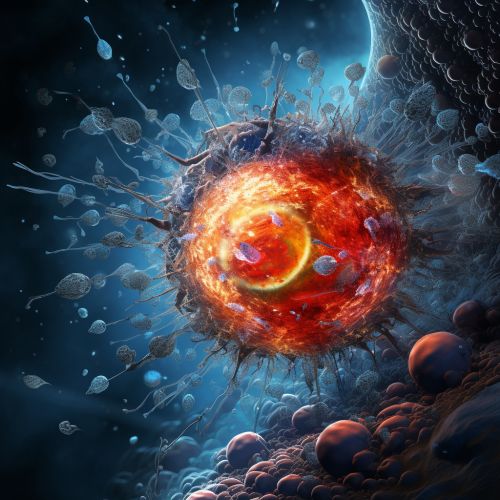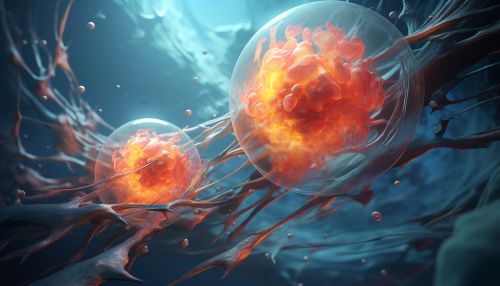Autophagy
Overview
Autophagy is a cellular process that involves the degradation and recycling of unnecessary or dysfunctional cellular components. This process is crucial for maintaining cellular homeostasis and adapting to various physiological conditions. Autophagy is a highly regulated process that can be modulated by various signaling pathways, including the mTOR pathway, AMPK pathway, and p53 pathway.


Mechanism
The process of autophagy begins with the formation of a double-membrane vesicle known as the autophagosome. This structure engulfs cytoplasmic material, including damaged organelles and protein aggregates, and then fuses with the lysosome to form an autolysosome. The contents of the autolysosome are then degraded by lysosomal enzymes and recycled back into the cytoplasm.
Regulation
Autophagy is regulated by a complex network of signaling pathways and proteins. The mTOR pathway, for example, is a major regulator of autophagy. When nutrients are abundant, mTOR is active and inhibits autophagy. However, under conditions of nutrient deprivation, mTOR is inhibited, leading to the activation of autophagy.
Role in Disease
Autophagy plays a critical role in various diseases, including cancer, neurodegenerative diseases, and infections. In cancer, autophagy can have both tumor-suppressive and tumor-promoting roles. In neurodegenerative diseases, impaired autophagy can lead to the accumulation of toxic protein aggregates. In infections, autophagy can help eliminate intracellular pathogens.
Therapeutic Targeting
Given the importance of autophagy in various diseases, it has emerged as a potential therapeutic target. Several drugs that modulate autophagy are currently under investigation for the treatment of diseases such as cancer and neurodegenerative disorders.
